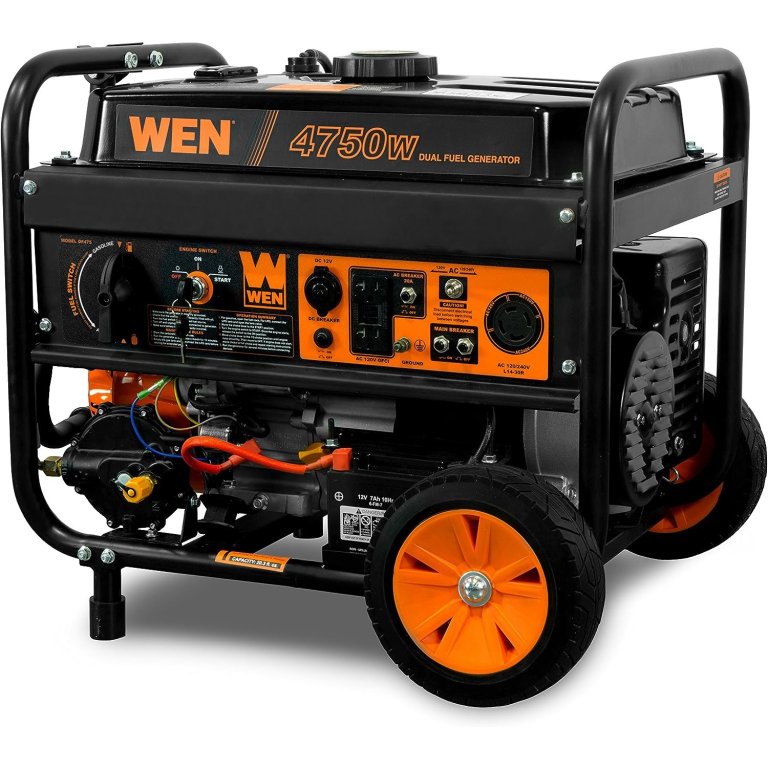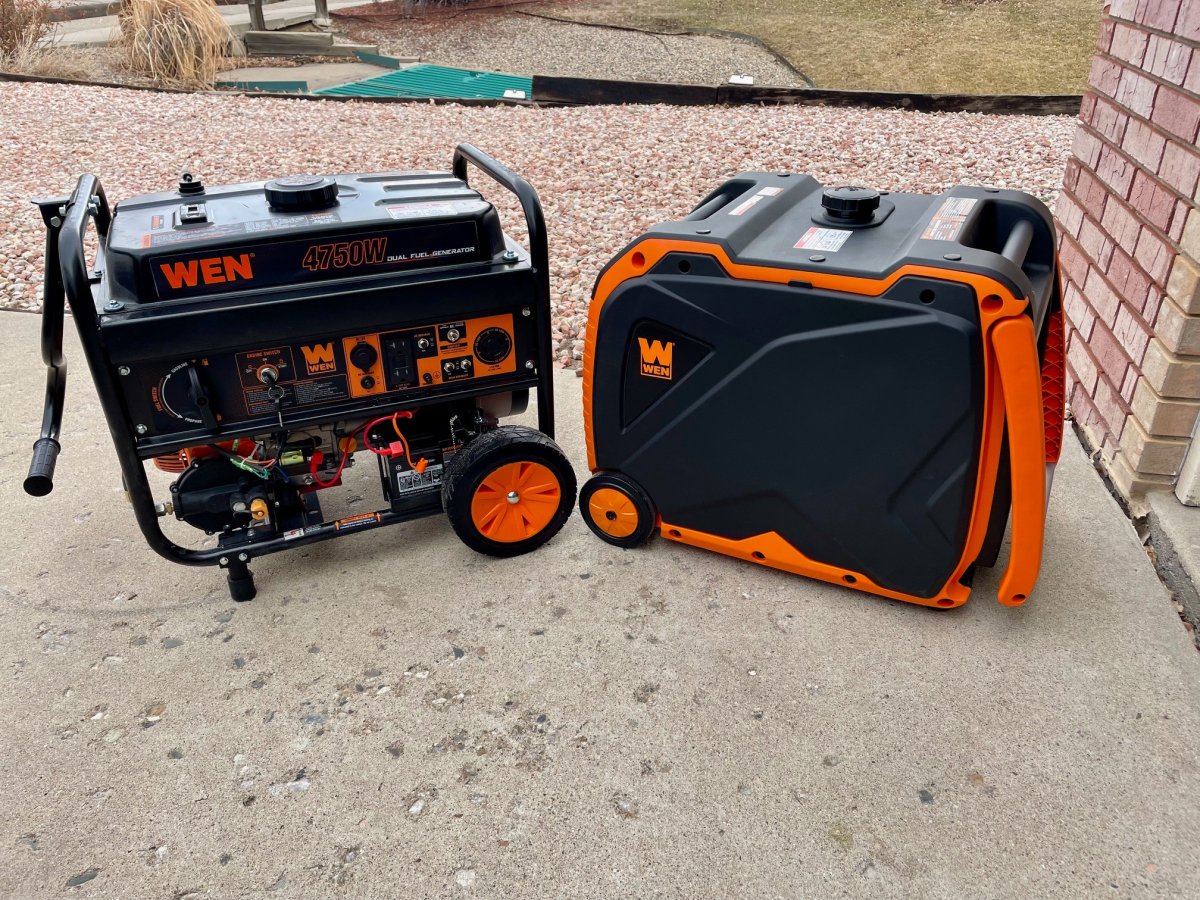
We may earn revenue from the products available on this page and participate in affiliate programs. Learn More ›
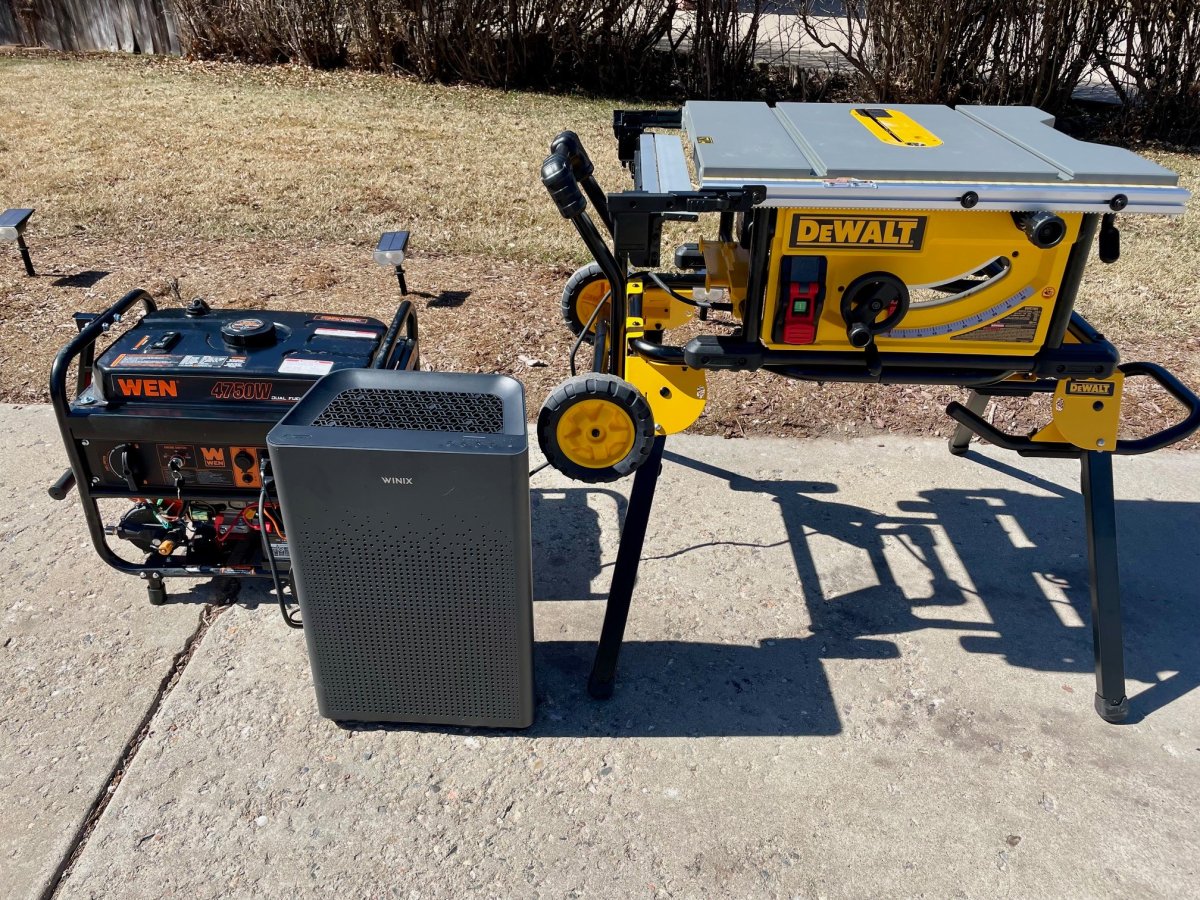
Buying a cheap home generator doesn’t have to mean compromising on wattage or user-friendly features. In fact, there are surprisingly powerful models available for a modest investment. Still, given the importance of having a reliable backup generator for home or jobsite use, it’s logical to be selective about which model you choose.
To aid you in your decision, we researched dozens of reasonably priced generators before testing two. Once our tests were complete, we chose the Wen DF475T Dual Fuel Portable Generator as the best overall cheap generator for its ease of use, performance, portability, and value. We really liked the other model we tested as well, the Wen 56380i Super Quiet 3,800-Watt Inverter Generator, a gas-only model that costs more but offers similar power while being less noisy. Though we haven’t had the chance to test them yet, our research highlighted another five options we also think are worth the money.
Whether you’re looking at inexpensive emergency generators for home use or simply need something small to charge tools at a construction site, this guide will help you find the best cheap home generators for the job.
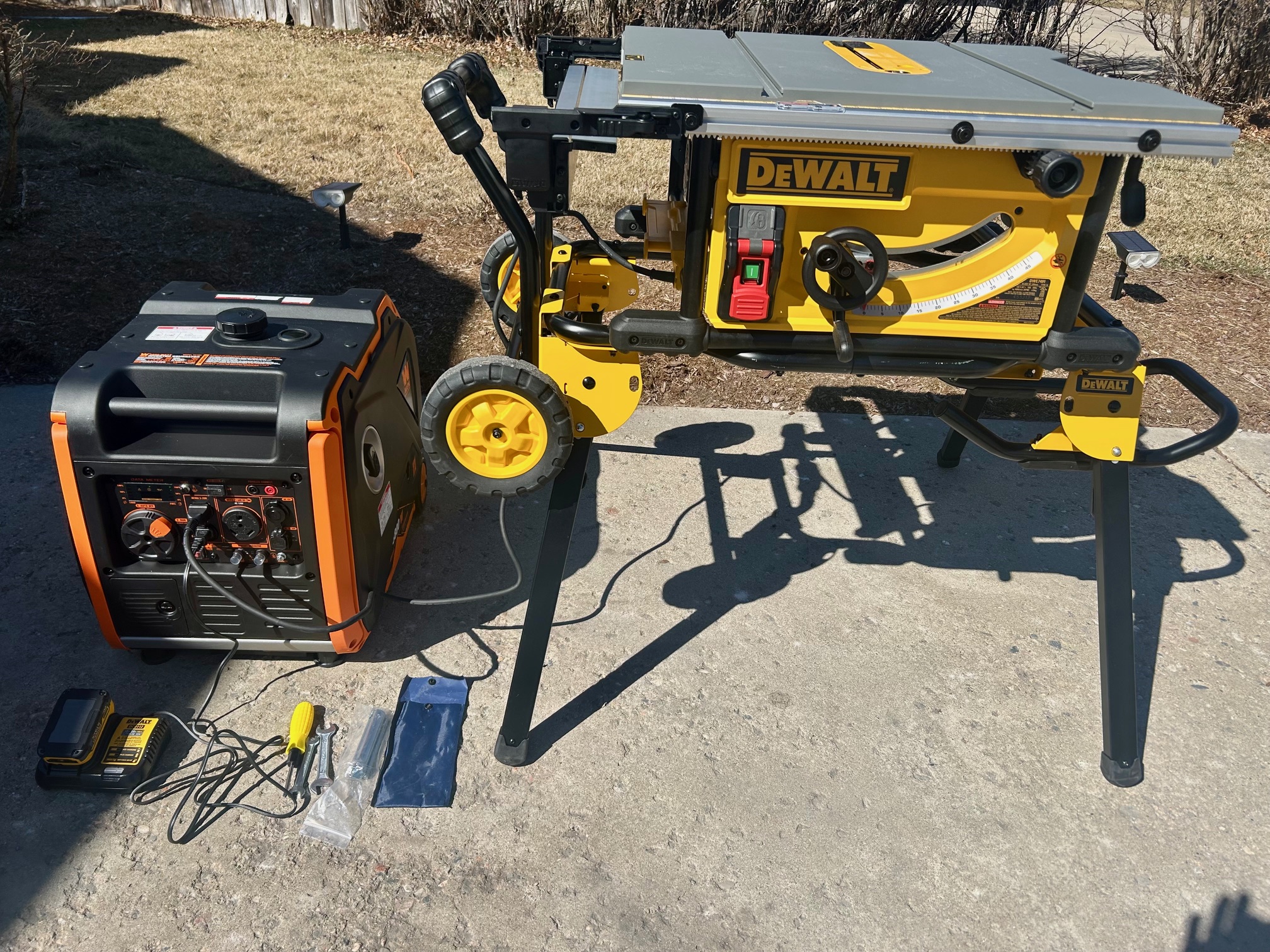
Best Overall
Photo: AmazonWhat We Like
- Outstanding performance for the money
- Connects to RV and home power systems
- Dual-fuel capability
- Runs up to 11 hours at half load
What We Don’t Like
- Assembly takes 1 to 2 hours
- A bit loud at 75 decibels
Specs
- Wattage: 4,750 peak/3,800 running on gasoline; 4,350 peak/3,500 running on propane
- Fuel: Gasoline or propane
- Connectors: Two 120V GFCI outlets (5-20R), one 120V/240V NEMA 30A twist lock (L14-30R), and one 12V DC car-accessory-style plug
Our Ratings: Ease of Use 4.2/5; Noise 3.5/5; Portability 4/5; Performance 5/5; Value 5/5
The Wen generator brand is known for producing durable and reliable products at affordable prices, and the company’s DF475T took top honors for being among the most powerful portable generators available for the money while also offering the versatility of dual-fuel operation. When running on gas, it delivers 4,750 starting watts and 3,800 running watts, with only a slight drop to 4,350 surge watts and 3,500 running watts on propane. Both outputs are more than enough to run essential appliances during electrical outages, even those that pull a lot of power like electric heaters and air conditioners.
Though assembling this portable generator took us almost 2 hours, once we’d attached the handle, installed the wheels, connected the battery, and added fuel and oil, the electric start made getting it running easy. Switching between propane and gasoline was just as easy, thanks to the large dial on the control panel and the included 47-inch LPG hose.
Once we got deep into testing, we powered everything from a table saw and air purifier to multiple battery chargers and a mini fridge. The well-designed control panel made switching between 120 volts and 240 volts simple, and the selection of outlets—one 12V DC socket, two standard 120V GFCI sockets, and one 120V/240V NEMA 30A twist lock (RV power system or a home breaker box)—added to its versatility. And though the unit weighs just over 105 pounds, it’s quite maneuverable, thanks to its fold-up handle and large rubber-covered wheels.
What our tester says: “The hardest part about testing this generator was finding enough power-hungry appliances to plug in to reach max load. Beyond that, the electric start was consistently reliable, and being able to switch to propane if you run out of gas gives a certain sense of comfort.”—Michelle Larson, Product Reviews tester and writer
Get the Wen cheap home generator at Amazon, The Home Depot (with CO shutdown sensor), Northern Tool + Equipment, or Wen.

More Cheap Generators Worth Your Money
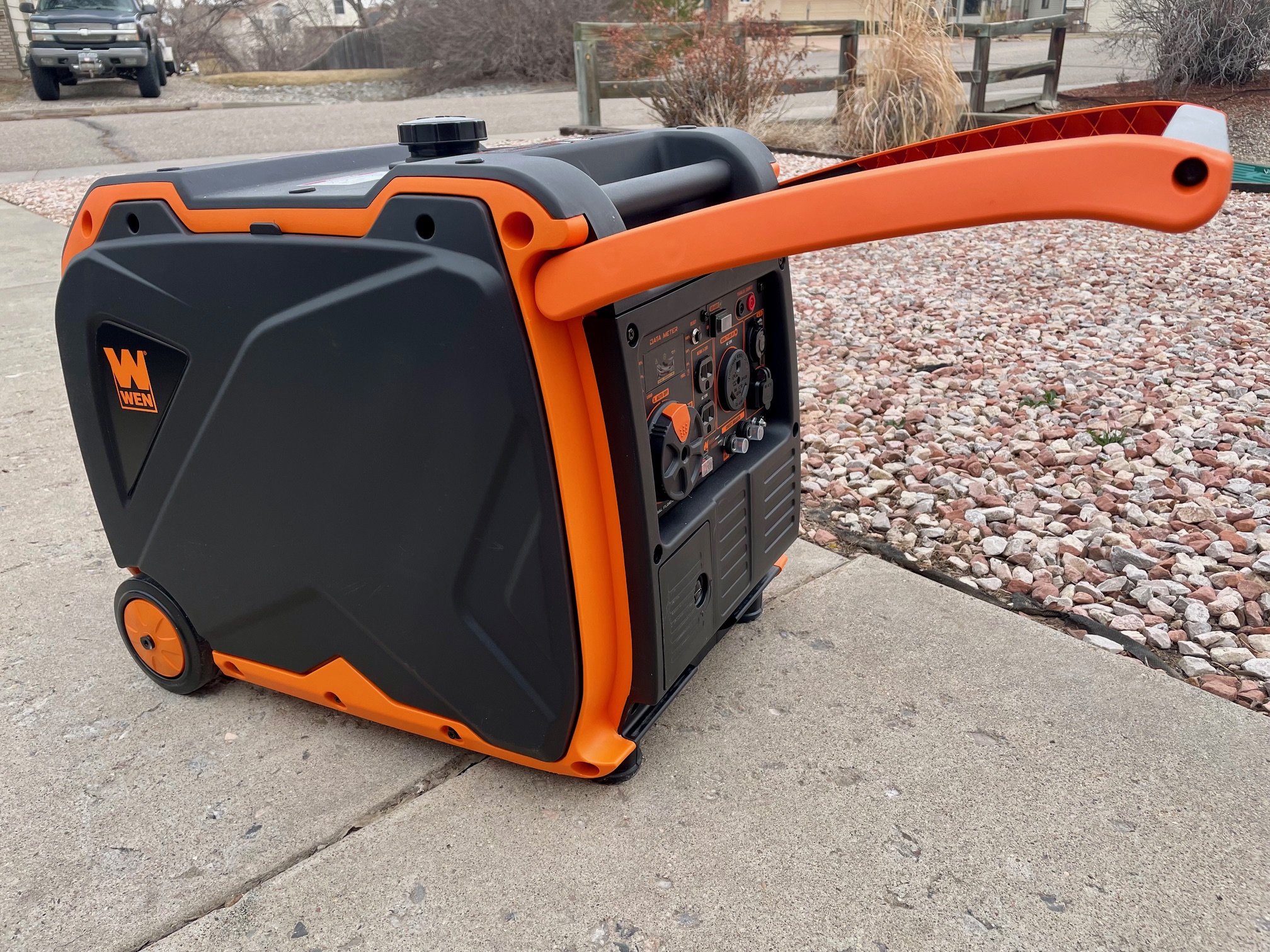
Of the following inexpensive portable home generators, we’ve only tested the Wen 56380i so far, but we think it and the rest of the included options offer an excellent blend of power and performance at a very reasonable price.
- Wen 56380i Super Quiet 3,800-Watt Inverter Generator, available at Amazon, Walmart, Northern Tool + Equipment, or Wen.
- Wen GN400iX 4,000-Watt Inverter Generator, available at Amazon or Wen.
- Champion Power Equipment 100522 3,500-Watt Generator, available at Amazon.
- Westinghouse iGen2200c Inverter Generator, available at Amazon.
- DuroMax XP5500EH 5,500-Watt Dual Fuel Generator, available at Amazon or Walmart.
- GenMax GM3200i 3,200-Watt Gas Inverter Generator, available at Amazon, Walmart, or Northern Tool + Equipment.
How We Chose and Tested the Best Cheap Home Generators
To choose generators for this guide, we first had to determine what constitutes a cheap home generator. While we don’t expect them to provide enough backup power for an entire house during a power outage, we do think even inexpensive units should produce enough watts (ideally 2,000 or more) to run essential appliances. Though our top pick peaks at an impressive 4,750 watts, price was clearly another top priority, so we were careful not to include anything over $750, no matter how much power it offered.
Beyond output and price, we also prioritized portability and noise. A few affordable generator models we selected are inverter generators, which are substantially quieter than their traditional gas counterparts, and most that weigh over 50 pounds have handles and wheels for maneuverability.
Testing the Wen DF475T and Wen 56380i involved assembling each unit; connecting as many high-wattage appliances as possible; wheeling them around and loading them into the back of our car; changing their oil and spark plugs; measuring how much noise they produced with a decibel meter; and starting them after storing them all night in a 32-degree Fahrenheit garage.
| Product Name | Ease of Use | Noise | Portability | Performance | Value |
| Wen DF475T Dual Fuel Portable Generator | 4.2 | 3.5 | 4 | 5 | 5 |
| Wen 56380i Super Quiet 3,800-Watt Inverter Generator | 4.7 | 4 | 3.5 | 5 | 4.3 |
What to Consider When Choosing a Cheap Home Generator
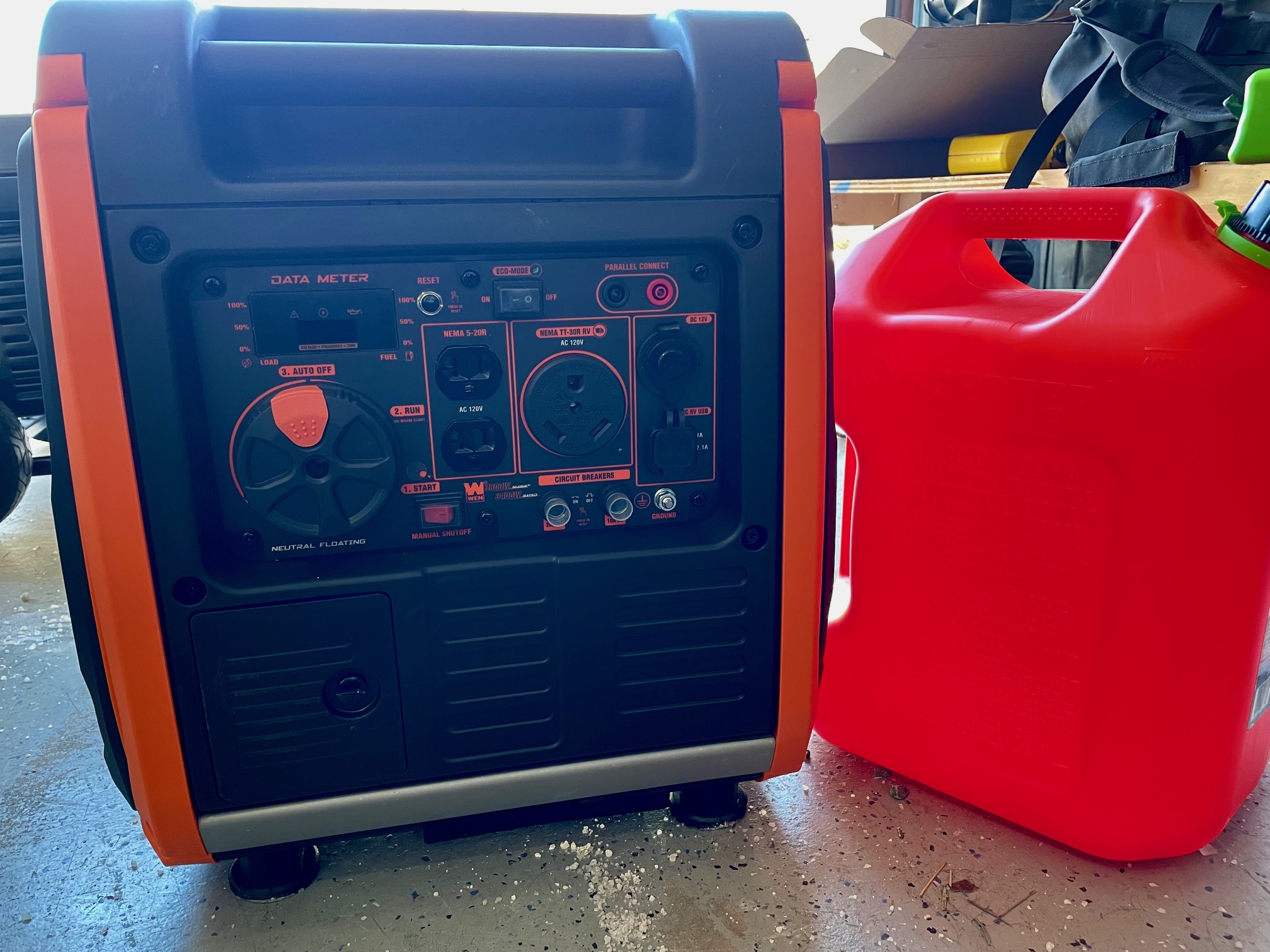
When it comes to finding the best cheap home generators, there are plenty of models to choose from, even if you don’t want to spend a lot. To get the most from your investment, take time to consider your preferences regarding fuel, wattage, and more.
Type
Generators can broadly be divided into four types: whole-house generators, portable gas generators, inverter generators, and solar generators. Portable power stations are sometimes called generators, but they don’t actually generate electricity themselves. Instead, they have internal batteries that the user can charge via a standard wall outlet or solar panels that store power until needed.
- A whole-house generator costs a couple thousand dollars and requires professional installation, which adds to the cost. Even relatively cheap whole-house generators are too expensive to be included in this guide.
- Gas generators are some of the most affordable and widely available options for backup power. They provide high wattage for running multiple appliances, though they also tend to be less efficient and rather loud. Some gas models are dual fuel, meaning they can also run on propane.
- Inverter generators strike a balance between performance and price. They’re more fuel-efficient and quieter than traditional gas generators while producing cleaner power, which is safer for sensitive electronics. While they tend to cost more upfront, their efficiency and stable output make them a great long-term investment.
- Solar generators generally provide modest power output, making them better for camping or RVing than for providing backup power. Still, they’re often available at a reasonable price, so they may work in some scenarios.
Wattage
Generators are rated by the watts of power they produce—the higher the wattage, the more electricity available. This translates into the capability to supply large appliances or multiple devices at the same time.
Every piece of electrical equipment has a wattage rating indicating how much power it uses. For example, an electric clock might use just 1 watt, a light bulb 15 watts, a power drill 250 watts, and an air conditioner 1,000 watts or more. To determine the wattage your generator needs, add up the power requirements of the appliances you plan to run. However, you don’t necessarily need to power everything at once. For instance, if both your coffee maker and toaster require around 800 watts, you don’t necessarily need a 1,600-watt generator since you can use the appliances one at a time.
Also, remember that generators have two wattage ratings: starting watts and running watts. Starting watts are higher because most electrical devices surge when turned on before settling into a lower demand for normal use. The first figure is particularly important for high-performance power tools, which tend to surge more dramatically. By contrast, electronics such as laptops produce a negligible surge.
Power Source
All of the cheap home generators on this list are powered by gasoline. Some, usually called dual-fuel generators, can also use propane. Since performance is not consistent across both fuel sources, remember to factor in which fuel you prefer when deciding whether a particular generator will produce enough power for your needs.
If you’re looking for the most environmentally friendly way to generate electricity, you may want to look into getting a solar-powered generator for home use. However, finding an option that delivers ample power and includes solar panels to keep the overall cost down may be challenging.
FAQs
The information above should clarify the performance aspects of these home generators. For those looking to buy a cheap home generator, having answers to all the questions you have can help narrow down the options.
Inverter generators are the cheapest type to run; they also produce lower emissions and are quieter than traditional gas generators. However, it’s important to check that the output is sufficient for your needs. Some gas generators meet strict CARB (California Air Resources Board) emission standards and typically produce more power for the money.
The cheapest time to buy a generator is usually when demand is the lowest, which is normally outside any stormy times of year when power outages are less common. It’s also worth checking prices during the various sale seasons and on Black Friday. You might find cheap generator deals when new models are introduced, as it’s common to mark down remaining stock on previous versions when rolling out new ones.
The amount you should spend on a home generator depends greatly on your needs and which type of generator you prefer. The units in this guide cost between $450 and $715 and may produce enough backup power for your needs. If you need a whole-house standby generator, you’ll likely spend at least $2,000 to $3,000 for the unit and several times that for installation.
Where you should put a home generator depends on its fuel source. The gas and dual-fuel portable home generators on this list should be used outdoors, at least 20 feet away from doors, windows, and vents.
A home generator’s runtime depends on its fuel type, capacity, and load. A small gas generator may only provide 5 to 6 hours of power, whereas a natural gas home generator will run indefinitely, provided it has enough gas.
You can install a portable home generator yourself, but standby generators require professional installation since setting them up improperly can cause electrical hazards or carbon monoxide poisoning.
The lifespan of a portable home generator is usually measured in hours of operation, with many units lasting up to 2,000 hours. Standby generators are built to last 10 to 30 years, depending on use, build quality, and maintenance.
Meet the Tester
Michelle Larson has been a writer and editor for more than 10 years. In her time with Bob Vila, she’s tested gas and dual-fuel generators as well as portable power stations paired with solar panels. Because she’d rather spend a little more up front than buy a tool or appliance twice, she strongly believes in the power of research and reviews for finding quality items meant to last.
Additional research provided by Bob Beacham.

